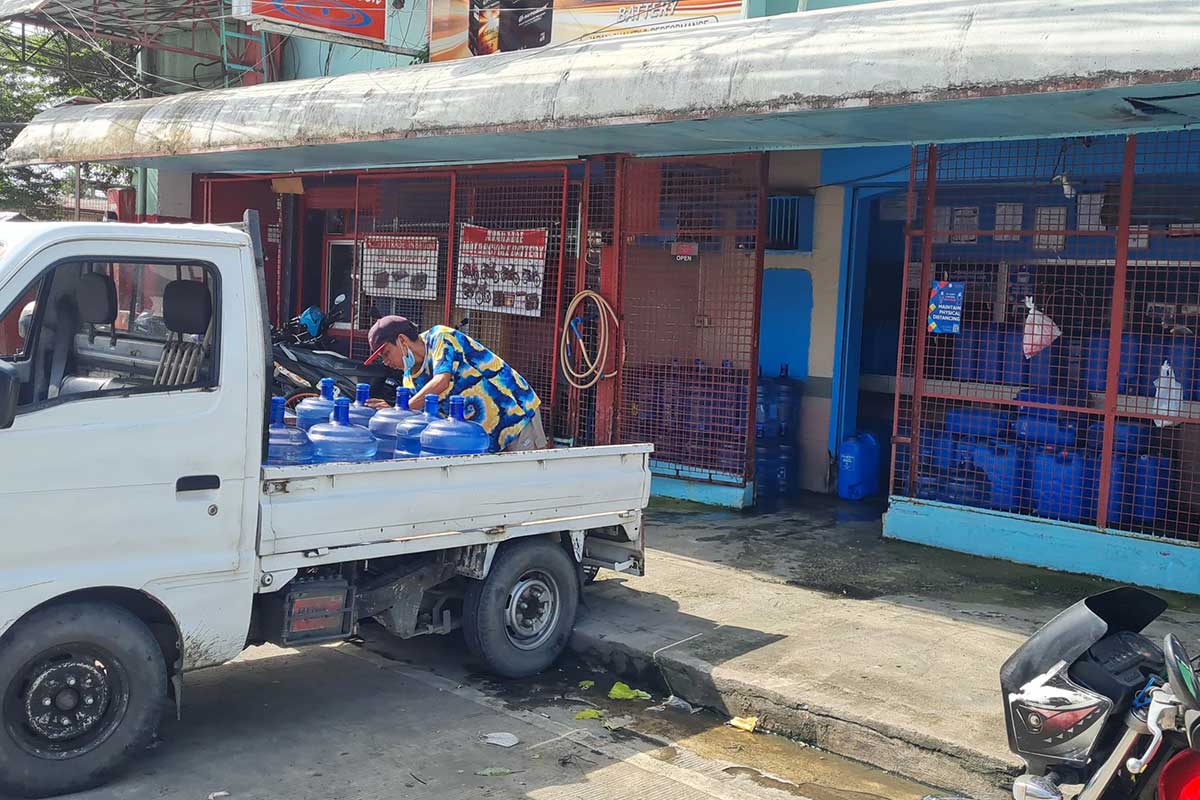
By John Noel E. Herrera
Iloilo City has recorded additional fatalities due to Acute Gastroenteritis (AGE) caused by contaminated food or water, as cases in the metro continue to increase.
Data from Iloilo City Health Office (ICHO) indicated that there are already eight fatalities recorded as of Aug. 31, 2022 with cases reaching 228 already.
The first AGE fatality was reported in March 2022, while the youngest was a four-month-old baby girl from Zone 2, Barangay Tanza, Timawa, City Proper, and the oldest was a 63-year-old female from Maria Clara City Proper.
The five other fatalities were:
-Two-year-old male from Rizal Palapala 1, City Proper
-Eight-year-old female from Zone 6 Calumpang, Molo
-31-year-old male from Zone 3 Sagasa, Hibao-an Norte, Mandurriao
-Five-year-old male from Zone 6B, Molo Boulevard, Molo
-11-month-old baby girl from Santo Rosario-Duran, City Proper.
ICHO also reported that 115 cases of AGE have already recovered, while 53 are still under treatment.
Data also showed that the City Proper district has the most number of cases with 88, followed by Jaro district (26); Arevalo (20); Mandurriao (20); Lapuz (12), and La Paz (11).
Children aged 1 to 10 years old remain the most affected age group with 102 cases; followed by 11 to 20 years old (37 cases); 21 to 30 years old (19), and 31 to 40 years old (18).
The Iloilo City Disaster Risk Reduction and Management Council (CDRRMC) also recommended the declaration of a state of calamity in the city, as aside from the reported high cases of AGE, there were also eight recorded cases of cholera in the metro.
The Sangguniang Panlalawigan is set to tackle the CDRRMC’s recommendation to put the city under a state of calamity status on Friday, Sept 1, 2022.
PREVENTIVE MEASURES
Iloilo City Mayor Jerry P. Treñas released Executive Order No. 054, directing all water refilling stations in Iloilo City to undergo mandatory water potability testing.
“Due to this rapid increase in AGE cases, there is a need to revisit and heighten the sanitary measures, particularly with all water refilling stations in the city,” part of the EO read.
The EO also stated that “all refilling stations operating within Iloilo City are required to submit a monthly water potability test through accredited laboratories only” and “all personnel of every water refilling station operating in the city shall process a valid health card issued by the City Health Office, and shall be worn by the personnel at all times during business hours.”
Under the EO, only Sanitation Inspectors from ICHO are allowed to collect water samples for water potability testing.
Those refilling stations that will be found violating the required water potability testing will also be given sanctions “which include but are not limited to the provisions under the Iloilo City Tax Code, cancellation of business permits and/or closure of the establishments, and shall also be a ground for non-renewal of their business permits for the subsequent year.”
Treñas also released Memorandum Order No. 058, which directs all barangay captains in Iloilo City to strictly implement EO No. 54, and Memorandum Order No. 059 directing all district health officers to order all sanitary inspectors under their jurisdiction to strictly implement EO No. 54.
Based on the bacterial tests and water sample analyses conducted by the ICHO on 32 refilling stations in the city, four were positive for E. coli and coliform bacteria, while 14 were positive for coliform bacteria only.
Out of the 56 deep and tube wells that underwent the tests, 39 were positive for E. coli and coliform bacteria, while 15 were positive for coliform bacteria only.
As of Sept 1, there were already nine water refilling stations in the city that were closed by the Iloilo City Government as they failed to pass the Water Quality Test, including one that used to supply drinking water for the Mayor’s Office.
Iloilo City Councilor and Chairman on Health Dr. Urminico Baronda also advised everyone to check their sources of water and cautioned the public against buying street food as the food and drinks might be contaminated.
On the other hand, several street food vendors in the city also assured the public that the food and water that they are selling are clean and safe.
In a radio interview, Jeofrey Corpuz, a street food vendor said that he has a health card and that the ice cubes he puts in the juice he is selling are from purified water.
“Kaluy-an man, wala man may gareklamo sa akon (the food I sell), basta kabalo ka lang sa food safety kag kabalo ka sa food handling nga gina tawag kay pagkaon ni daan, muna ang importante gid.” he added.
(Thankfully, I haven’t received any complaints, what is important is you are knowledgeable when it comes to food safety and food handling, that is the most important thing.)
Meanwhile, Treñas also said that as part of the long-term solution, the city government is planning to put pipe water sources in all the households in the city.
They are also already working with the Metro Pacific Iloilo Water (MPIW) and Metro Iloilo Water District (MIWD) for the said plan as there is already a joint venture agreement to address the problem.
Aside from this, the city government is also planning to put up communal toilets in different areas in the city.
“Mabutang kita sang mga communal toilets sa lugar nga pwede kita, and galibot na to subong ang city engineer para nga mapangitaan sang lugar, especially ang dira halin sa Rizal-Bonifacio. We will come up with communal toilets nga dapat malimpyuhan permi,” Treñas said in a radio interview.
(We will put up communal toilets in places that are available and the city engineering is already checking for places, especially from Rizal-Bonifacio. We will come up with communal toilets that should be cleaned always.)





















